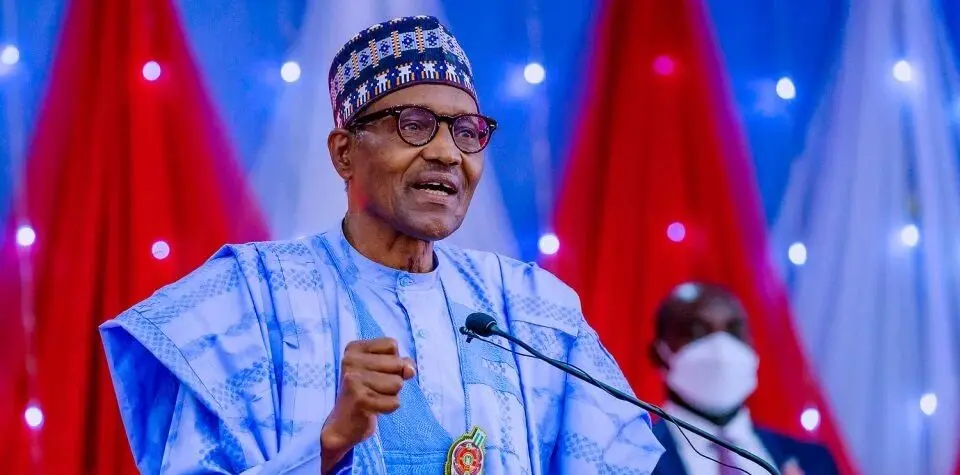How safe is Nigeria for the 2023 polls?
As President Muhammadu Buhari’s presidency winds down, the Independent National Electoral Commission, INEC, has almost concluded plans to organise credible, fair and transparent 2023 polls. But with terrorists, armed bandits, kidnappers for ransom, ritualists, oil thieves, and IPOB criminals still holding the country to ransom, no thanks to their violent activities, patriotic and concerned Nigerians […]

Muhammadu Buhari
As President Muhammadu Buhari’s presidency winds down, the Independent National Electoral Commission, INEC, has almost concluded plans to organise credible, fair and transparent 2023 polls.
But with terrorists, armed bandits, kidnappers for ransom, ritualists, oil thieves, and IPOB criminals still holding the country to ransom, no thanks to their violent activities, patriotic and concerned Nigerians will be forced to ask: is the country safe for the 2023 general elections?
In recent years, Nigeria has been facing unprecedented security challenges that continue to threaten its corporate existence. These security bottlenecks are becoming albatrosses to the realisation of the country’s development agenda.
Lately, INEC raised an alarm saying that the worrying insecurity may force it to postpone or cancel the forthcoming polls if not properly addressed by concerned authorities.
Noting that the development could hinder the declaration of election results and precipitate a constitutional crisis, the electoral umpire called for concerted efforts to stem the tide of violence.
As expected, the statement was trailed by disquiet and condemnations from citizens, civil society groups and socio-cultural organisations across the country.
However, 30 days to the Presidential and National Assembly elections, the INEC summoned courage and vowed that the timetable will not be changed, saying that the issue of postponement or rescheduling the election is not on the table.
Even with this assurance, one cannot be oblivious to the different kinds of security threat that is facing each and every part of the six geopolitical zones.
For example, in the North West where banditry and kidnapping are blossoming, several thousand people were killed and others were dislodged from their communities. Up to now, these marauders are still having a field day, especially in states like Zamfara, Kaduna, Niger and Katsina where the trend is more pronounced.
The incessant farmers-herders clashes have ruined several communities in North Central, especially in Benue and Nasarawa states, that are bearing the brunt.
In the North East, insurgency by Boko Haram and ISWAP terrorists has been on in the last decade, especially in Borno, Adamawa and Yobe.
Though they are being decimated on a daily basis by joint military operations, these terrorists are still very much alive and can seize any opportunity to scuttle the electoral processes.
In the South East, the activities of unknown gunmen, specifically the militants’ wing of the IPOB terrorist organisation, have been posing a threat to elections across the entire region.
The militants have been setting INEC offices and other facilities ablaze across the zone as well as killing its personnel.
In the last four years, the Independent National Electoral Commission has recorded 50 attacks on its facilities across 15 states and the majority being carried out in South East with Imo State alone recording 11 incidents.
It is obvious that if not checked, these problems may not allow INEC to have a playground to fully execute its mandate of ensuring that nobody is disenfranchised.
In the Niger Delta region, the activities of militants have been curtailed to the barest.
This is not unconnected to the Presidential Amnesty Program (PAP) in which most of the miscreants who were attacking oil facilities, engaging in piracy, robbery and kidnappings are being engaged in either skills acquisition programs or education under various schemes.
The South West region is also a calm area since the arrest and detention of the self-acclaimed Yoruba nation freedom fighter, Chief Sunday Adeyemo, popularly known as ‘Sunday Igboho.
The federal government has been making necessary arrangements and preparations to ensure that the stipulated day for the conduct of the elections remains sacrosanct. This includes but is not limited to providing the INEC with all the necessary logistics to carry out its mandates successfully.
It has also been beefing up security across the nooks and crannies of the country using all the available security architectures.
Looking at the measures put in place by various security agencies, it can be inferred that Nigeria can go ahead with the 2023 polls, but not totally ignoring the chances of security glitch here and there.
More attention should be focused to curtailing the rampaging activities of IPOB militants in the South East as well as bandits, kidnappers and insurgents in the northern region, as they pose the biggest threats to the 2023 polls.
Mukhtar Ya’u Madobi wrote from Kano
